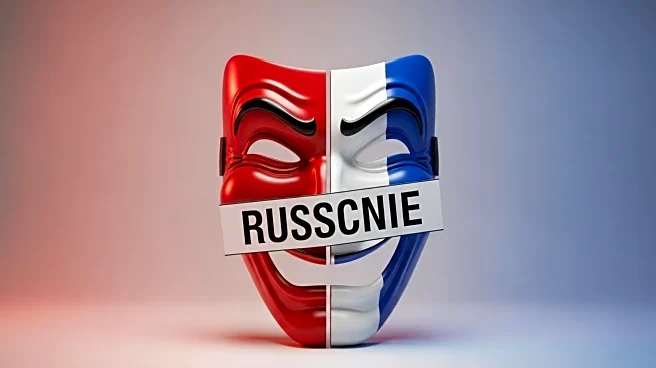What's Happening?
NPR has reported on the removal of popular political satire shows featuring puppets in Russia and France. These shows, known for their critical portrayal of political figures, have been taken off the air due to pressure from authorities. The report draws parallels with a recent incident in the U.S. involving Jimmy Kimmel's show, which faced temporary cancellation. The creators of the Russian and French shows shared their experiences, highlighting the challenges faced by satirical programs in maintaining their presence amidst political pressures.
Why It's Important?
The censorship of political satire shows in Russia and France underscores the broader issue of media freedom and the challenges faced by satirists in authoritarian contexts. Such actions reflect a growing trend of suppressing dissent and controlling narratives, which can have significant implications for freedom of expression and democratic discourse. The situation also highlights the precarious position of media outlets and creators who challenge political authority, potentially leading to a chilling effect on free speech and artistic expression.
What's Next?
The removal of these shows may prompt discussions on media freedom and the role of satire in political discourse. It could lead to increased scrutiny from international human rights organizations and media watchdogs. Additionally, there may be calls for greater protections for satirical content and its creators, as well as discussions on the importance of preserving diverse voices in media.
Beyond the Headlines
The censorship of satirical shows raises ethical questions about the balance between political power and freedom of expression. It also highlights the cultural significance of satire as a tool for social commentary and political critique. The long-term impact could include shifts in how media is consumed and produced, with potential adaptations in format or distribution to circumvent censorship.











